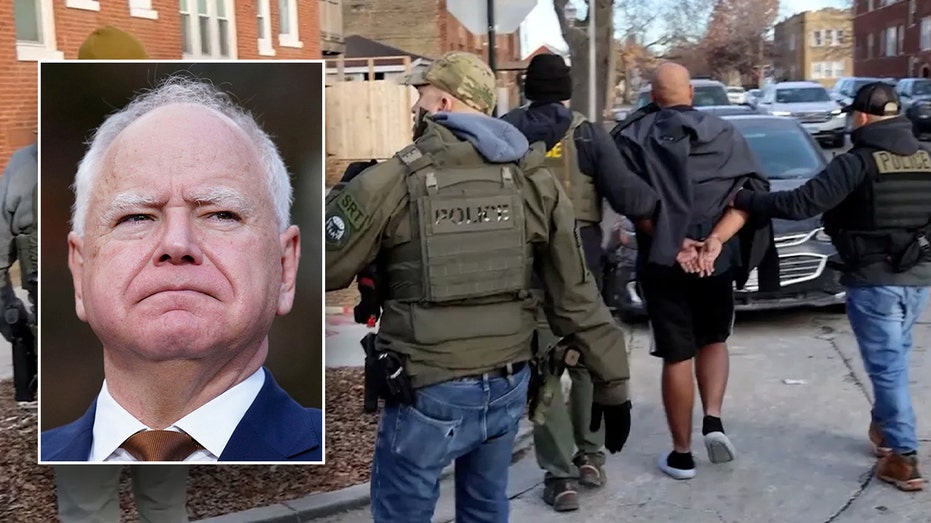DHS Responds to Democrats Over 'Beyond the Pale' Rhetoric Amid Increasing Threats Against ICE Agents
Homeland Security condemns attacks on ICE agents, blaming Democratic leaders for escalating "vilification" campaigns.

The Department of Homeland Security (DHS) is intensifying its calls for Democratic leaders to moderate their rhetoric toward Immigration and Customs Enforcement (ICE) agents, as unrest continues to grip Los Angeles and threats against agents mount. Violent demonstrations erupted again Sunday night in Los Angeles, where ICE operations have increasingly become the focal point of clashes. Officials say threats of doxxing and violence against agents are on the rise, with DHS leadership warning that hostile political discourse is exacerbating the danger faced by law enforcement officers.
DHS Assistant Secretary Tricia McLaughlin issued a stark statement condemning what she described as the “despicable” targeting of ICE personnel by rioters. She directly called upon Los Angeles Mayor Karen Bass and California Governor Gavin Newsom to denounce the violence and demand an end to attacks. “The men and women of ICE put their lives on the line to protect and defend the lives of American citizens,” McLaughlin emphasized, urging political leaders to take greater responsibility for the climate of hostility.
McLaughlin’s criticism extended beyond California officials. She highlighted remarks from House Minority Leader Hakeem Jeffries, Boston Mayor Michelle Wu, and Minnesota Governor Tim Walz, all prominent Democrats. According to DHS, incendiary language from these and other politicians has contributed to a staggering 413% increase in assaults on ICE agents in recent months. The department pointed specifically to comparisons of ICE with “modern-day Nazi Gestapo” and allegations that politicians were glorifying anti-ICE rioters.
Mayor Wu and Representative Jeffries have come under fire for questioning the agency’s decision to allow agents to wear masks during enforcement sweeps—a move intended to protect their identities amid rising threats. Jeffries, speaking on Capitol Hill, declared that “every single ICE agent… trying to hide their identities… will of course be identified,” framing the use of masks as antithetical to American values of transparency. Wu went further, drawing a controversial parallel between masked ICE officers and members of the neo-Nazi group NSC-131, insisting that police departments rarely require such anonymity.
Governor Tim Walz’s remarks at a University of Minnesota law school commencement also fueled tension, as he likened ICE’s tactics to those of the Gestapo, claiming that masked agents were detaining individuals without allowing for due process or farewells with family members. This analogy, according to DHS and agency leaders, not only demeans federal law enforcement but further incites aggression and mistrust toward ICE officers on the ground.
In response to the ongoing riots, President Donald Trump ordered the deployment of the National Guard to Los Angeles, a decision likely to trigger further legal battles, with Governor Newsom signaling potential court challenges. Newsom argued that the administration’s actions are “manufacturing chaos and violence,” while promising that those who commit violent acts during protests would be held accountable. He criticized federal immigration sweeps as “reckless and cruel,” alleging they are driven by arbitrary quotas that break up families and harm key American industries.
Los Angeles Mayor Karen Bass, for her part, sought to discourage residents from “engaging in violence and chaos,” warning against playing into federal hands. However, her earlier statements accusing ICE tactics of sowing “terror” in communities drew scrutiny and further complicated efforts to restore calm. As tensions remain high, federal and local officials struggle to strike a balance between voicing legitimate policy differences and containing rhetoric that inflames confrontations on city streets.
With both sides entrenched, the situation has become a flashpoint in the wider national debate over immigration enforcement and political discourse. DHS continues to urge Democratic leaders to reconsider the impact of their words, arguing that heated rhetoric can have real and potentially tragic consequences for federal officers tasked with implementing immigration policy.




